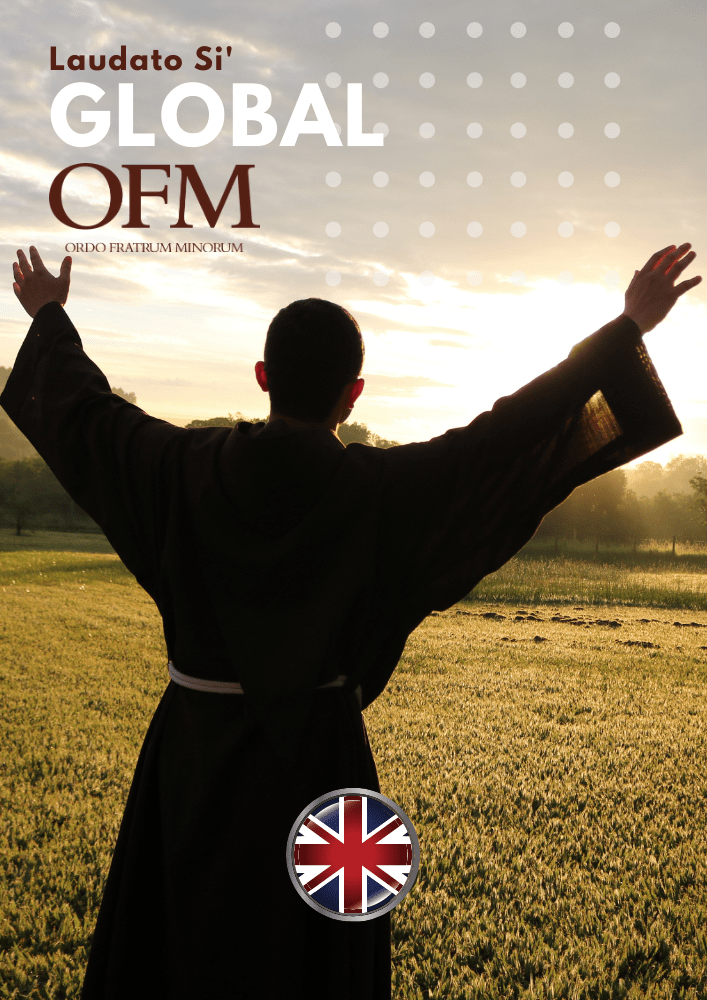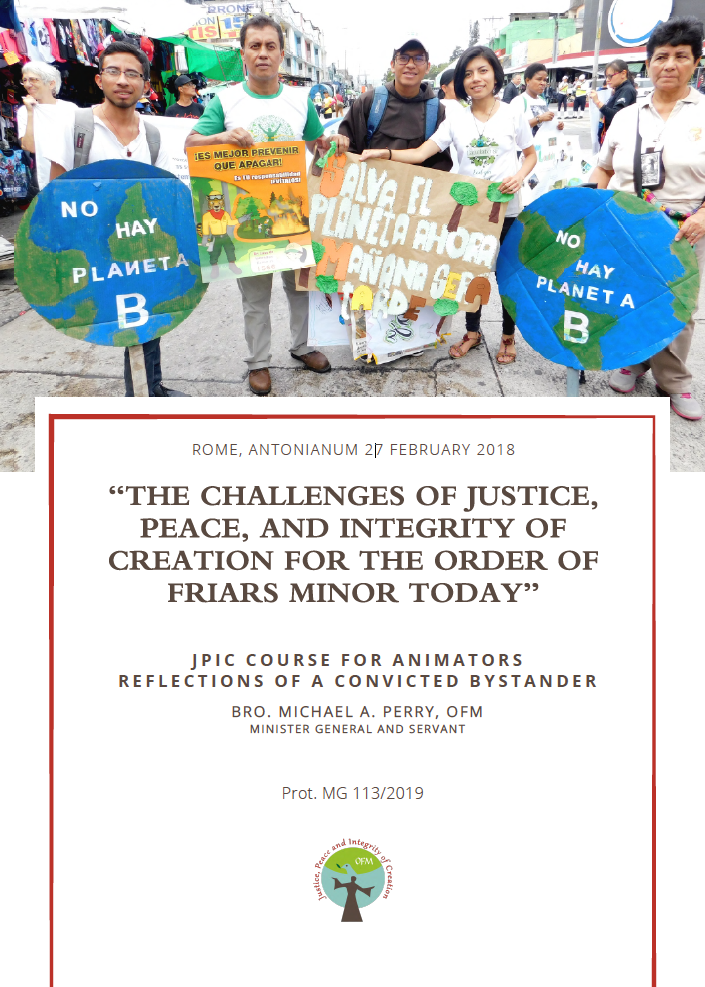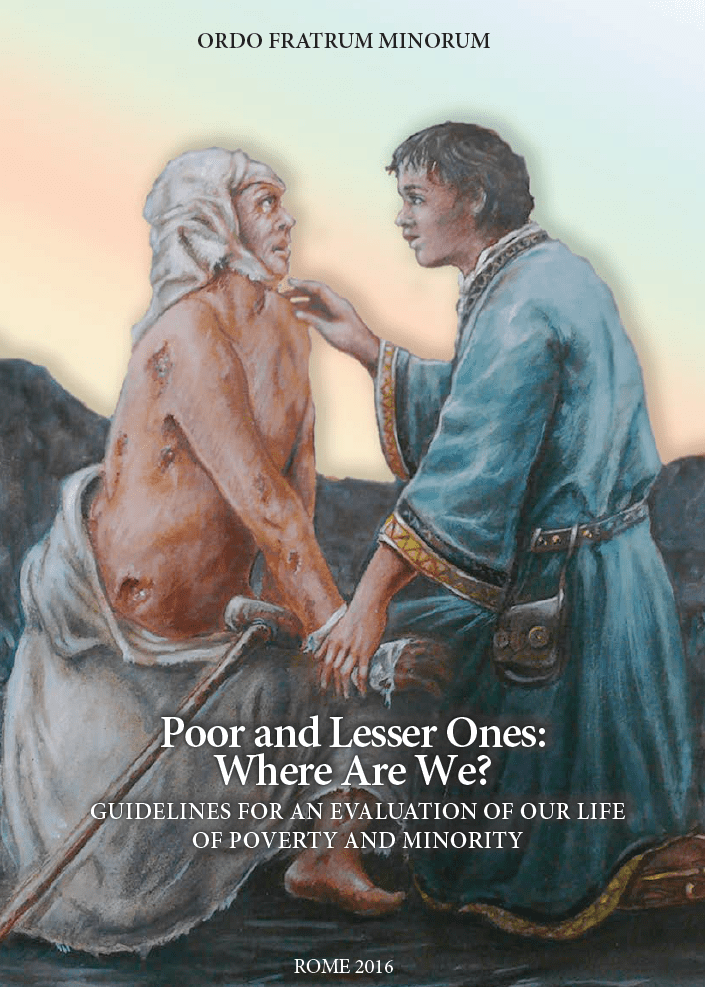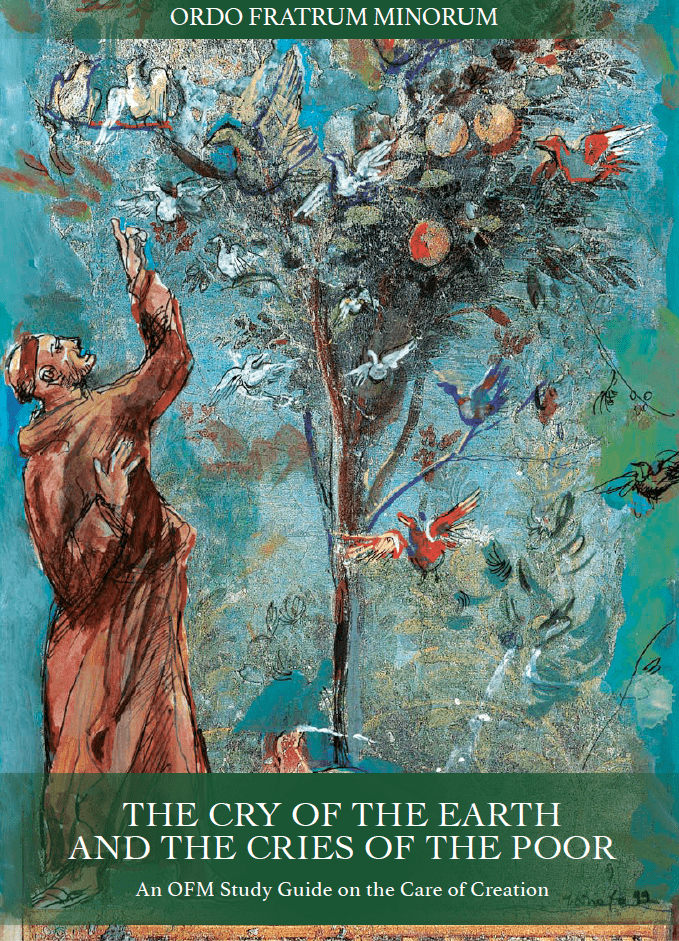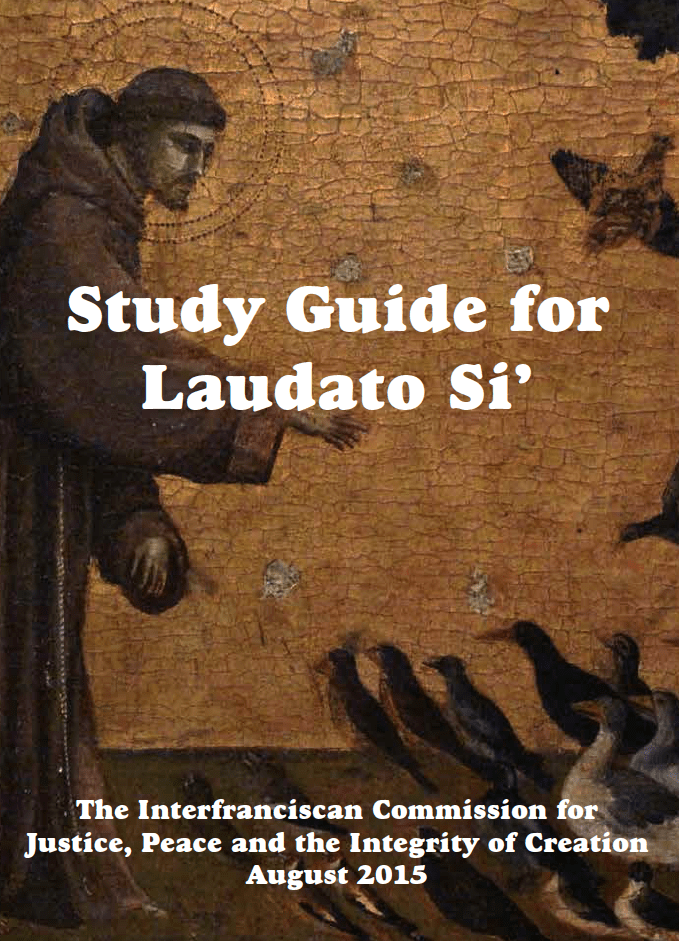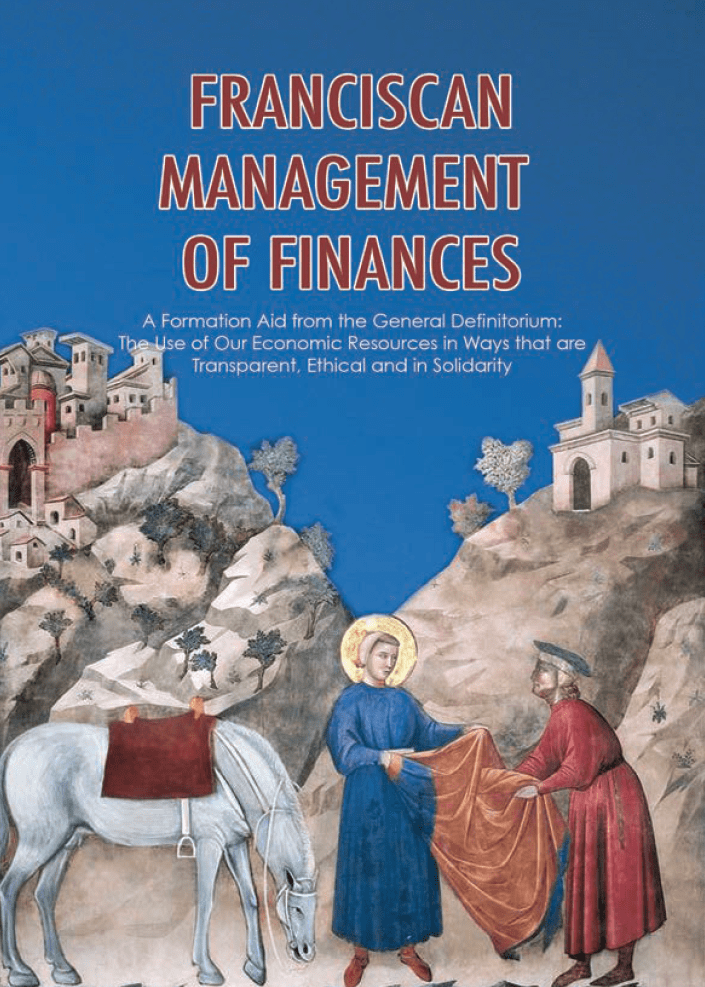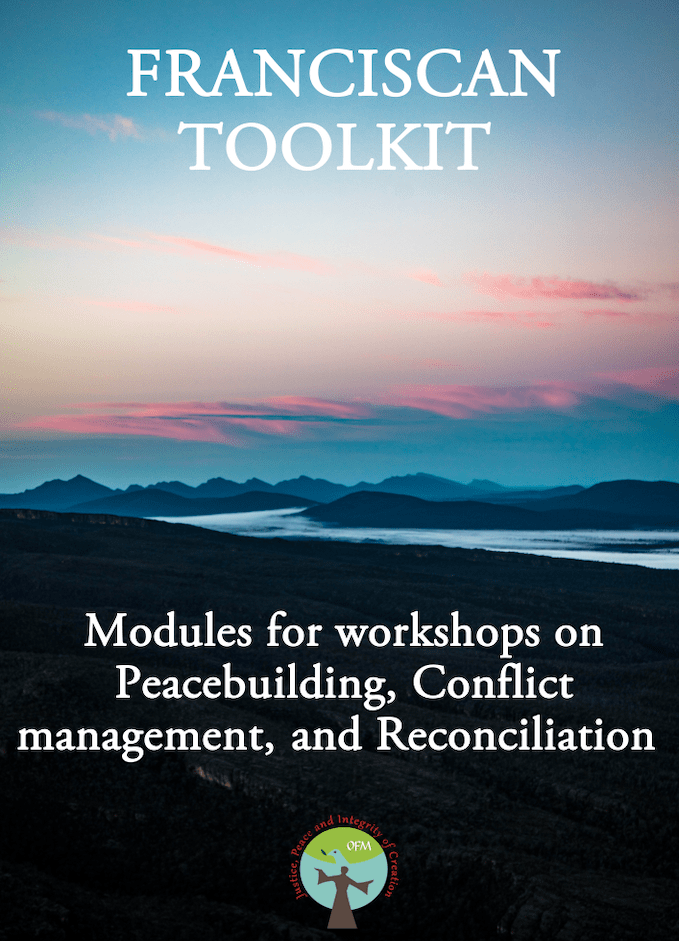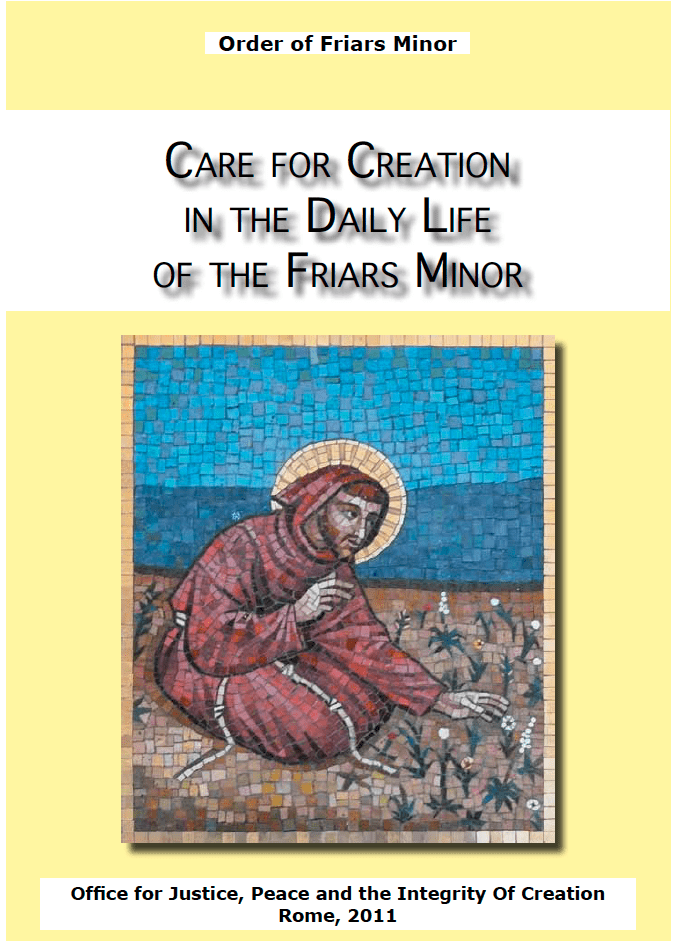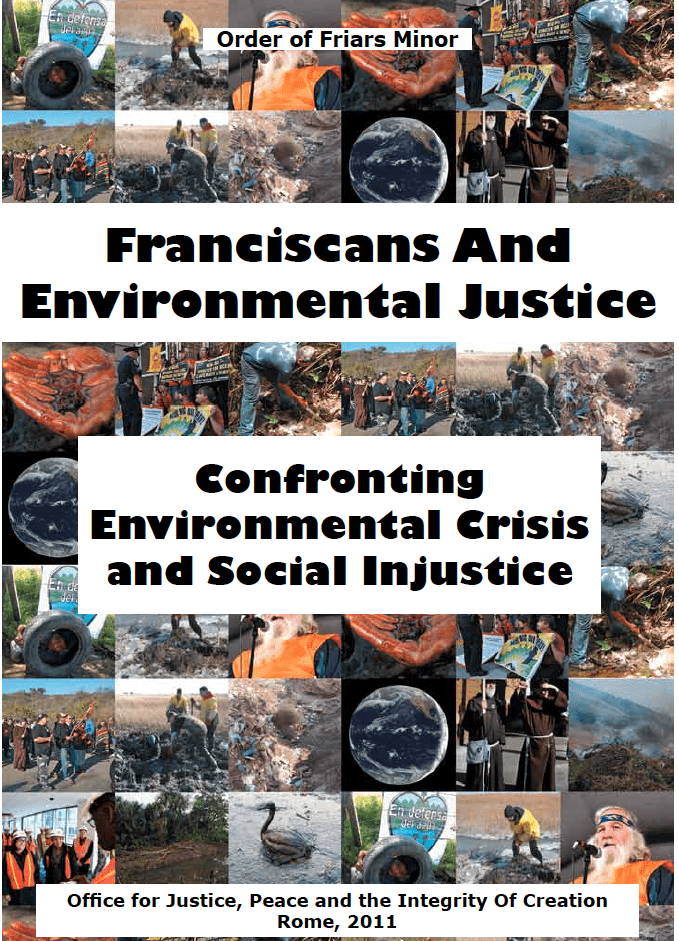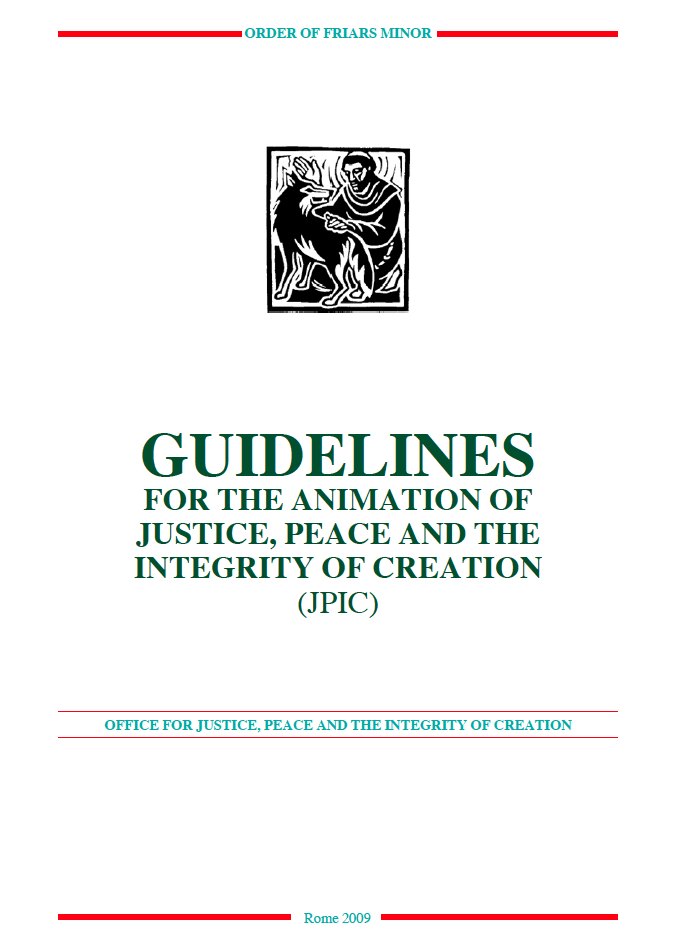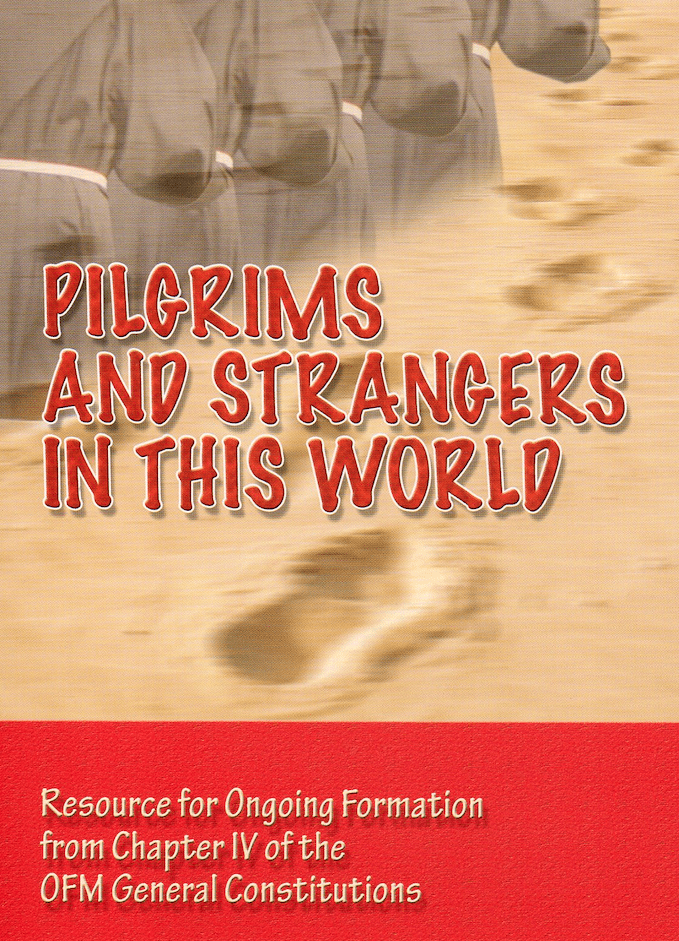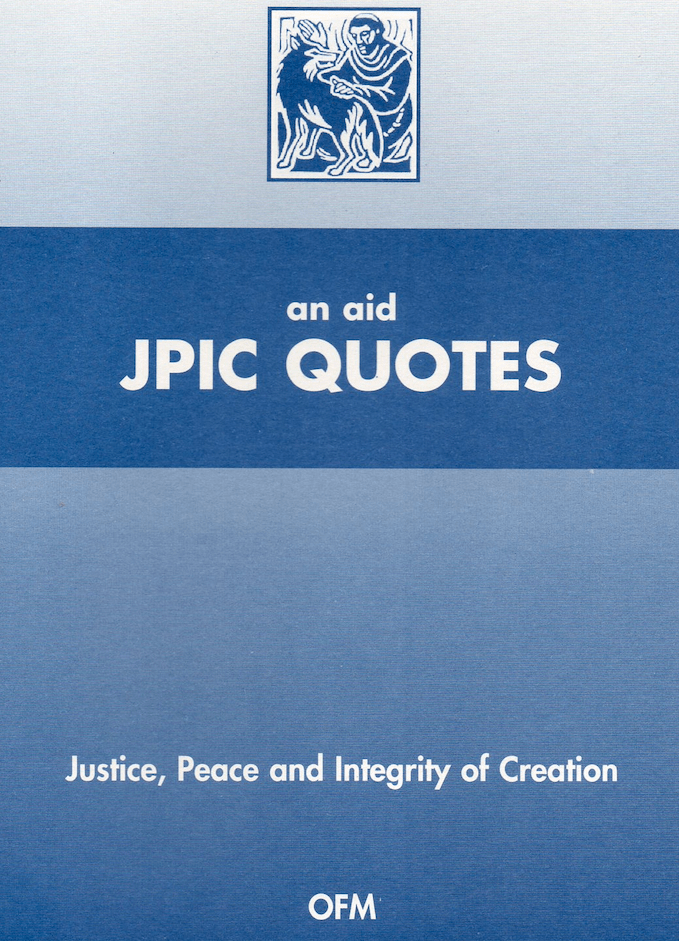Resources
Do you want to share a resource?Global OFM: Laudato Si’
Compendium of the presentations of the “Global OFM” meeting organized jointly by the General Secretariat for Formation and Studies and the JPIC General Office, for the brothers in initial formation of the Order.
This document addresses the challenges of the Encyclical Laudato Si ‘, the place of JPIC in Franciscan formation, the relationship between Saint Francis and Laudato Si’, the current initiatives of the Order with the Laudato Si ‘Revolution and some testimonies of the work carried out by the JPIC animators in the Order.
Challenges of JPIC for the Order Today
It is the documentation of the intervention of Br. Michael Perry, Minister General, at the annual JPIC course at PUA 2019. First, it gives a comprehensive perspective over JPIC as the universal vocation for Christians on the biblical and ecclesial foundations. He explains the meaning of the expression that JPIC is an essential part of the Franciscan DNA, proving that JPIC is not just an option but a Franciscan identity itself. It also presents important points to reflect on the reality of JPIC in the Order and how to enhance it.
Poor and Lesser Ones: Where Are We?
The booklet is the result of the collaboration of the General Bursar, the Secretariat for Formation and Studies and JPIC Office, in response to the decision no. 8 of the General Chapter 2015. It provides guidelines and instruments of self-evaluation on our life in terms of our Franciscan charism of poverty and minority. It is also designed for group work or chapters on different levels.
The cry of the earth and the cries of the poor.
While this short document is rooted in the Franciscan and biblical traditions, it intentionally expresses that same tradition in partnership with contemporary science. In conjunction with previous documents of the Church and the Order – pre-eminently with Laudato
Study Guide for Laudato Si’
This study guide for the encyclical Laudato Si’was written by the group Romans VI in response to a request from the Conference of the Franciscan Family. Each of the seven chapters gives a summary of the corresponding chapter of the encyclical and reflection questions which facilitate a deeper reading of Laudato Si’ — either as an individual or a group. It does this from the perspective of Franciscan spirituality.
Franciscan Management of Finances
This subsidy elaborates on the issue of the ethical use of financial resources. It’s obvious for us Franciscans that economic resources should be acquired and used n more evangelical, i.e. transparent and ethical way. The booklet shows the deep relation between economy and the evangelical values of equality and solidarity, and the Franciscan Foundation of ethics of economy.
Franciscan Peacebuilding Toolkit
This resource offers Franciscan and biblical texts as well as very practical materials on the topic of peacebuilding and reconciliation. It is a response to a mandate from the 2009 OFM General Chapter to promote active nonviolence in our lives, with an emphasis on conflict resolution. The entire Franciscan family, as well as others who want to enter more deeply into the work of peacebuilding, will find it useful.
Care for Creation in the Daily Life of the Friars Minor.
This quite short resource book helps friars understand what environmental justice is by focusing on four significant stories (mining in Indonesia, deforestation in Amazonia, and social and environmental degradation in Africa and New Orleans). It appeals to the friars to identify regional environmental problems and to become actively involved in addressing them as “signs of the times.”
Franciscans and Environmental Justice
This rather short resource book helps brothers understand what the environmental justice is, with four significant stories (mining in Indonesia, deforestation in Amazonia, social and environmental degradation in Africa and New Orleans). It appeals to the brothers to identify regional environmental problems and to get actively involved in addressing them as “the signs of the times.”
Guidelines for the animation of JPIC (Justice, Peace, and Integrity of Creation)
This booklet helps fraternities reflect upon and study how our daily lifestyle (diet, transportation, use of water, etc.) affects the environment. It recommends practical steps to develop new habits. This resource arose from a mandate of the 2009 OFM General Chapter to examine the impact of our lifestyle on Creation, especially in regard to climate change.
Pilgrims and Strangers in this world
This resource dates from 2008 but is still a very worthwhile resource for the study of Chapter 4 of the OFM General Constitutions.
It is divided into study sections that provide reflections and concrete contemporary experiences that deepen the themes being addressed: being lesser ones; being promoters of justice and peace and custodians of creation; not appropriating anything; being poor among the poor, and working faithfully and with devotion. All of the sections would be very useful for local fraternity meetings, for
An Aid: JPIC Quotes
This is a compilation of quotes dealing Justice, Peace and the Integrity of Creation. They come from the General Constitutions and General Statutes (1985-2004), the Ratio Formationis Franciscanae (1991, 2002), and the Ratio Studiorum (2001). This short booklet is divided into six sections: JPIC as an essential part of our Franciscan charism; the cultural and social place of the Friars Minor; JPIC service; JPIC Formation; JPIC structures in the Order; and general organizational and pedagogical guidelines. Each section contains some related quotes. The selection is not meant to be exhaustive but instead provides resources for reading and reflection.
“Spirit of Assisi”
In recent years, as an Order, we celebrated and promoted this ecumenical and interreligious prayer in different places of the world, bringing the “spirit of Assisi” into our countries and our people.
Usually we do this celebration on October 27 or a bit earlier. So, we did an overview of the resources available in our office, so that you can organize any proposed meetings.

